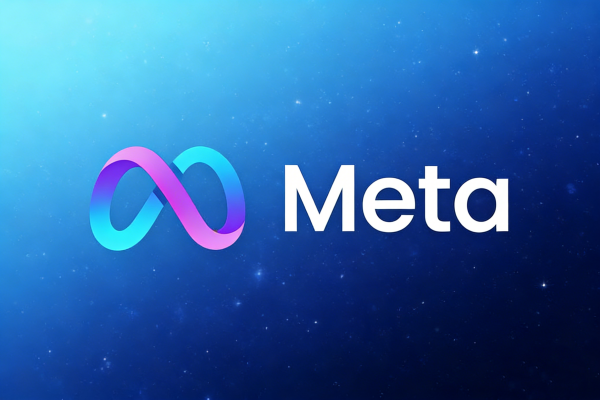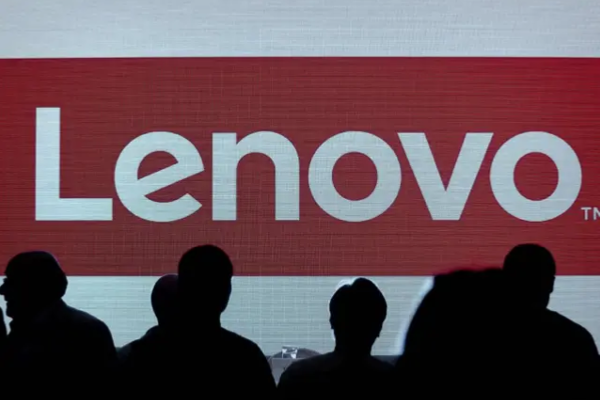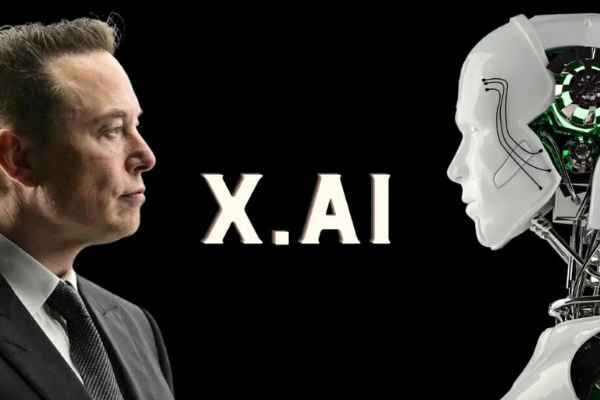Monetary System Repair: Satoshi Nakamoto’s Subversion of Human Society
Bitcoin means different things to different people. I want to share what Bitcoin means to me and explain what I think is Satoshi Nakamoto's core innovation. First, I want to make it clear that the real innovation of Bitcoin is not cryptography, the Internet, or computer technology. These emerging technologies are just means to an end. What Satoshi Nakamoto really innovated is one of the most important inventions of mankind: social structure.
Social structure requires integrity and consensus
"Integrity: Doing the right thing even when no one is watching."
—— C.S. Lewis
When you think of social structure, you may think of friendship, cultural traditions, or today's popular social media. However, people often overlook that money is also a social structure. In fact, the essence of money is social structure.
Money is a system that carries great value, and the existence of this value depends entirely on everyone's common recognition that money should "work like money." Therefore, to understand the nature of money as a social structure, we need to clarify two questions: one is what money "works like money" means, and the other is why everyone needs to reach a consensus on this.
People have certain basic expectations about money: that it cannot be printed in unlimited quantities; that the money you hold cannot disappear or increase without reason; that you can freely spend your money, etc. These characteristics constitute what I call the inherent integrity of money. In other words, the nature of money determines that it will work as you expect it to work even if you are not constantly monitoring it.
However, the inherent integrity of money is only one aspect. On the other hand, money also needs credibility (i.e., perceived integrity), that is, there must be a broad consensus on its integrity throughout society, otherwise the currency will not be able to maintain its value. For example, if there is a rumor that the government will force banks to freeze their assets, it will seriously damage the credibility of the currency. Even if the rumor is false, the currency may begin to depreciate.
In short, the value of money depends on both its inherent integrity and its credibility. Any structure whose value is based entirely on inherent integrity and credibility is a social structure. And money is the purest and most influential form of social structure (other forms will be discussed at the end of this article).
Human society has been constantly inventing and redefining money. In the simplest way, society picks a homogeneous and scarce physical resource to serve as money. In my elementary school years, that physical resource was gum wrappers. In prisons, cigarettes were currency; in some societies, it was shells, salt, and stone; and for thousands of years until the eve of modern times, gold played the role of currency. But today, most currencies are digital, their scarcity relies on state endorsement, and the power to manage this resource is delegated to a few specific companies (i.e., banks). To a large extent, the value of a currency depends on how much we trust the integrity of the state and its mechanisms that run the monetary system.
Bitcoin is a completely new way to implement the social structure of money. Its innovation lies not in the use of computers and the Internet technology, but in how it uses the Internet to implement the social structure of money. Specifically, Bitcoin follows the following three unprecedented principles: (1) universality (i.e., decentralization), (2) incentive-based integrity, and (3) public verifiability. We will explain these principles separately below.
Extensive (decentralized)
Bitcoin is defined by a protocol, which is a set of programs that are run by many computers connected via the Internet. Traditional currencies also rely on protocols (such as the SWIFT system), but what makes Bitcoin different is that its protocol invites everyone to participate in the operation of the system as an equal. Each of us can freely download the open source software that defines Bitcoin miners, participate in creating new blocks through our own computers, and update the state of the Bitcoin ledger (that is, who owns how many Bitcoins). In addition, extensive participation is not just for convenience. The security, integrity, and value of Bitcoin are directly related to the extensiveness of its running nodes. The more people participate in mining, the more secure the Bitcoin network is, and the more the public trusts its integrity.
In contrast, the traditional banking system does not welcome us to participate in their operations. At best, we can only understand the situation of our accounts to a very limited extent. "Extensive" is a real innovation in the history of human society, built on the principles of equality, autonomy, and democracy, which are the cornerstones of a free society. "Extensive" echoes the old and fascinating idea of direct democracy, but goes further than it. Here, we are not only invited to vote and express our opinions, but also given equal rights to operate the "state". It is no coincidence that Bitcoin was born after the 2008 financial crisis. The crisis at that time brought quantitative easing (i.e. unlimited money printing) and the rescue of "too big to fail" banks. As the number of unbanked people in the world increases and large-scale surveillance gradually penetrates our daily financial transactions, the continued development of Bitcoin is a direct response to this situation. In other words, the emergence of Bitcoin is a resistance and response to the continuous erosion of the credibility and inherent integrity of the traditional financial system.
Incentivized Honesty
Bitcoin mining is profitable — you get rewarded with Bitcoins for every successful block you mine, and this process is open to everyone! This is perhaps the most amazing and amazing part of Satoshi’s invention. The Bitcoin protocol provides the integrity of the system by providing financial incentives (i.e., paying rewards) to participants to perform certain actions (creating valid blocks). This incentivizes and forces all miners to “do the right thing” even when no one is watching. If you stray from the “right path” (i.e., the Bitcoin protocol), you will lose money because the electricity costs of mining invalid blocks are wasted, and you will not receive any Bitcoins in return. The clever thing is that the value miners receive is not paid in dollars or euros, but in the form of Bitcoin itself. And Bitcoin, as a social construct, can only maintain its value if the public trusts its integrity. This creates a virtuous cycle: miners are incentivized to operate with integrity without coordination, because violating the protocol is a stupid thing to do — your hard-earned Bitcoin will be devalued, and you will suffer the consequences.
Let’s compare this principle of “incentivized integrity” to the traditional monetary system. In the traditional system, we are not invited to participate in the operation of the bank (the bank lacks universality), and those who do participate in the operation of the bank do not receive equal direct value rewards for maintaining the integrity of the bank or the national currency. Instead, the bank operates the system itself or hires service providers. The integrity of the system does not rely on the incentives of the protocol, but is enforced by contracts and the national legal system.
Imagine a world where banks provide equity (shares of the bank) or income (a portion of the bank’s fees) to a broad and open operating network in return; the state opens up the right of citizens to participate in the operation of the national monetary system and rewards their contributions with newly issued currency. I believe this is a superior and more democratic way to operate a national currency. I believe that countries that adopt this higher standard will have more autonomous citizens and more prosperous and free societies. Perhaps one day, inspired by Satoshi Nakamoto’s invention of “Bitcoin”, countries will move towards this more ideal system. But at least today, this is not a reality - and if society ever makes this leap, it will be entirely thanks to Satoshi's invention.
Public Verifiability
The third and final core part of Satoshi's innovation is public verifiability. This means that anyone can verify the complete integrity of Bitcoin, including all transactions since the genesis block in 2008. More importantly, you don't need a supercomputer to verify all this, just a laptop! This also means that I can use this laptop, typing on it, to verify the latest Bitcoin block in real time, and personally participate in this broad and democratic integrity and the social consensus it relies on. As long as someone tries to undermine the integrity of Bitcoin (i.e. the integrity of the network), all of us will know.
It is necessary to compare this with the traditional payment network again. In the traditional system, centralized institutions (such as banks, credit card companies, etc.) rely on huge computing nodes to process transactions. And we ordinary users have no way to directly verify the integrity of the system. Even if we can obtain some kind of viewing permission, the huge amount of computing is impossible to complete on an ordinary laptop.
Bitcoin's Innovation - Challenges and Opportunities
Let's summarize. Bitcoin's innovation is that it re-implements the ancient social structure of money in a completely new way. This new implementation uses new technologies such as the Internet and the widespread low-cost computer equipment, but its core innovation is to establish the social structure of money on three new principles: universality, incentivized integrity, and public verifiability.
Is universality sustainable?
Universality is the most fragile and worrying feature of Bitcoin, and it is the one that worries me the most. Creating a new Bitcoin block requires either a large amount of electricity or a great deal of luck. Obviously luck is uncontrollable, so we can only focus on the electricity issue. It is possible to imagine a dystopian future in which the operation of the Bitcoin network—especially the large amount of electricity consumed to secure the network—is completely controlled by a single or a few powerful entities (such as countries or large companies). This worrying future is not far-fetched for two reasons: (1) economies of scale may enable large operators to gain an advantage and gradually control a larger proportion of the computing power (i.e., Bitcoin's electricity consumption); and (2) as Bitcoin becomes more important in our lives and the economy, powerful forces such as countries and large companies will inevitably try to control Bitcoin. If this happens, and Bitcoin mining is controlled by a single entity or a few coordinated entities, then the consensus around Bitcoin's integrity will be weakened. This consensus includes, for example, its censorship resistance, its lack of barriers to entry, its issuance cap of 21 million coins, and its payment mechanism that does not require reporting additional information to centralized authorities. If these core principles are eroded, Bitcoin will lose its value.
Bitcoin’s ubiquity is not inherently guaranteed by Satoshi’s invention. Maintaining this feature is a long-term battle that all those who care about Bitcoin’s value and mission must participate in. Even if ubiquity is destined to be short-lived, the spirit of freedom it demonstrates will become a beacon in the long river of history, just like the short-lived but glorious ancient Greek democracy, and continue to illuminate and inspire all those who care about human freedom.
Bitcoin’s Global Scalability
Public verifiability is a feature that comes at a high price for Bitcoin. To ensure that transaction verification can be completed on common devices, we must limit the amount of computing required to verify Bitcoin transactions. It is precisely because of the principle of "public verifiability" that Bitcoin's processing power is limited to a maximum of about 10 transactions per second (10 TPS). This situation greatly limits Bitcoin's throughput and partly explains why only a very small number of people in the world use Bitcoin for daily purchases. Simply put, the current Bitcoin network lacks enough bandwidth to support everyone using Bitcoin to complete daily transactions. To achieve this goal, we need a Bitcoin network that can process thousands or even millions of transactions per second.
So we seem to be stuck in a dilemma - either stick with Bitcoin's public verifiability, but then be limited by low bandwidth and cannot meet the needs of global use; or improve scalability so that everyone can use Bitcoin to buy daily necessities, but with the loss of transaction transparency, because ordinary devices can no longer easily verify all data, and we have to rely on powerful centralized institutions again. This is where mathematics and cryptography come in.
Payment channels and the Lightning Network are a prominent cryptographic solution applied to Bitcoin since March 2018. It extends Bitcoin's throughput to a nearly unlimited level by allowing two parties to settle directly. This is a bit like a grocery store allowing customers to buy on credit and settle at the end of the month, except that the whole process requires almost no trust assumptions and the Bitcoin network itself acts as an arbitrator to prevent one party from trying to cheat.
However, this solution has two major disadvantages:
Low capital efficiency. Both the grocery store and the customer must pre-lock a sum of money at the beginning of the month, and the locked amount often needs to be higher than the customer's monthly consumption budget in order to complete the payment process smoothly;
Requires constant monitoring. Both parties must keep an eye on the state of their payment channels, and if one fails to do so, the other party could take advantage of that gap and steal funds.
Although it would require a change to the Bitcoin protocol (a soft fork), a different and better solution already exists. This is the solution I have been dreaming about for over a decade, and it is what drives me to work on blockchain every day. The zk-STARK protocol was co-invented by me 15 years ago while I was a full-time academic professor of theoretical computer science. This protocol allows all of us to verify all of Bitcoin’s blockchain, or even a million times more data, on our smartphones, without having to trust any third party that processes Bitcoin transactions. This solution completely solves the two shortcomings of the Lightning Network mentioned above. It is capital efficient and does not require users to be vigilant all the time. I first introduced this breakthrough blockchain technology at the Bitcoin Conference in 2013, and co-founded StarkWare in 2018 to make it a reality. Since then, we have successfully established zk-STARK technology as the ultimate solution for Ethereum scaling, working together with a growing zero-knowledge research ecosystem. I look forward to the day when Bitcoin can also integrate zk-STARK technology through a soft fork, and I am working with many people in the ecosystem to do so.
Bitcoin Beyond Money
Money is constructed by society to fulfill a specific social function. As a social construct, the value of money depends on two factors: (1) it must operate in good faith and (2) society generally agrees that it is trustworthy.
Money may be the most typical example of a social structure, but it is by no means the only example. In fact, there are many other systems, data sets, and programs that also serve society and carry great value, all of which are based on a broad social consensus on their trustworthiness. For example, the registration system for land, property, and cars is a social structure; the election and governance process is a social structure; the marriage registration system, social titles, religious titles, and academic titles are also social structures. Even our personal reputation, such as credit history and health records, is part of the social structure.
Most social structures are managed by monopolistic entities and central institutions appointed by national governments or nation-states. This leads to a question I’ll ask at the end of this article: Can these social structures be implemented in a radically new way, the Satoshi way, built on the principles of universality, incentivized integrity, and public verifiability?









